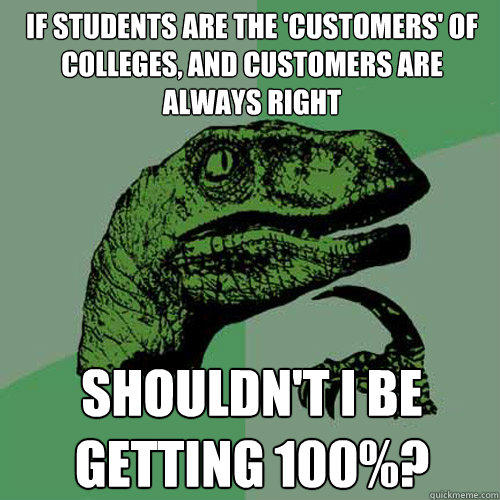There is a difference between a student and a customer.

Yet universities, driven by profit motives, and doubting their own values, often treat students as customers. This comes with “the customer is always right” fallacy, that actually precludes and prevents inculcating the virtues of learning, which the student-mentor relationship is predicated on. Without humility, without the principle of charity, without respect, earned mutually, there is no real learning. There is only hoop-jumping for treats, handed out as grades and degrees.
The student-customer elision also corresponds to the opinion=expertise fallacy, and the two build on one another. They are collectively corrosive to truth, knowledge, wisdom, goodness, and beauty. Because they are the closing off of the mind, rather than tickling it’s triggers, defense mechanisms, and edges, over which vast fields of complexity beckon.
All teachers know that teaching is not about grades or degrees — but bears a far more worthy fruit: that of a lifetime of wisdom, curiosity, intellectual acuity, perspective, and position-taking (amongst other virtues).
It is very hard to teach someone, when they are presumed and hence presume always already to be right.
